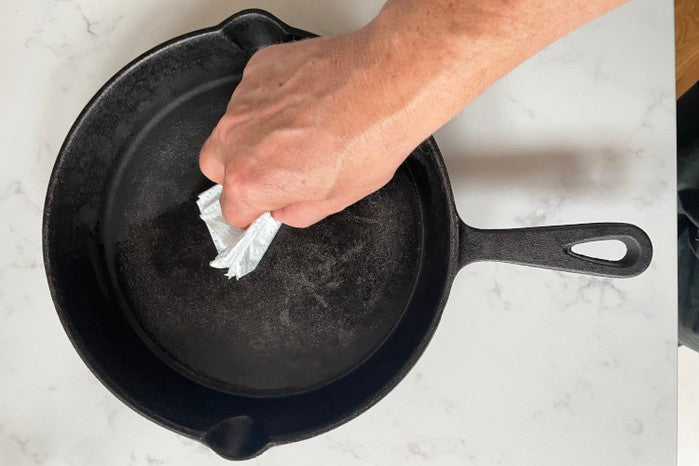Canola oil is a beloved cooking staple, known for its light flavor and high smoke point, making it suitable for various dishes. But sometimes, you might find yourself asking, 'What can I use instead of canola oil?' Whether youve run out, have dietary restrictions, or are simply in the mood to experiment, there are plenty of alternatives available. This article explores several options, each bringing something unique to the table, to help you make a well-informed choice.

Why Seek a Canola Oil Substitute?
Before diving into the alternatives, its essential to understand why a substitute might be necessary. While canola oil is praised for its neutral taste and cooking versatility, some people have concerns about its health impacts and production processes. Additionally, various dietary restrictions or allergies might lead one to explore other options.

Top Alternatives to Canola Oil
Olive Oil
Olive oil is one of the most popular and accessible alternatives. Packed with monounsaturated fats and antioxidants, olive oil is a heart-healthy choice suitable for a range of cooking methods, from sauting to baking. However, keep in mind that extra virgin olive oil has a lower smoke point, so its ideal for low to medium-heat cooking.
Coconut Oil
Coconut oil is another excellent choice, especially for baking and sauting. It imparts a unique flavor that adds a tropical twist to dishes. Although it has a higher saturation of fats, recent studies suggest these might not be as harmful as previously believed. With a medium-high smoke point, coconut oil fits many cooking needs well.
Avocado Oil
Avocado oil is gaining traction for its high smoke point and neutral flavor. Rich in monounsaturated fats, it offers numerous health benefits. Perfect for high-heat cooking methods like frying and grilling, avocado oil is incredibly versatile.
Sunflower Oil
Sunflower oil provides a neutral taste and high smoke point, similar to canola oil. Its an excellent source of vitamin E and antioxidants. This oil works well for frying, sauting, and baking, making it a versatile addition to your kitchen.
Peanut Oil
Peanut oil is highly suitable for high-heat cooking, particularly frying, due to its high smoke point. It offers a mild, nutty flavor that enhances many dishes. However, note that its unsuitable for those with peanut allergies.
Safflower Oil
Safflower oil is another fantastic option, known for its high smoke point and neutral flavor. Commonly used in salad dressings, stir-fries, and baking, safflower oil is rich in unsaturated fats, contributing to heart health.

Specialty Oils for Unique Flavors
Sesame Oil
Sesame oil brings a distinct, nutty flavor that can elevate various dishes. Frequently used in Asian cuisine, its perfect for stir-fries, dressings, and marinades. Though its smoke point can vary, sesame oil is generally best for low to medium-heat cooking.
Grapeseed Oil
Grapeseed oil is a byproduct of winemaking and offers a light, neutral flavor. With a high smoke point, its suitable for frying, sauting, and baking. Additionally, grapeseed oil is rich in polyunsaturated fats and vitamin E.
Walnut Oil
Walnut oil is cherished for its rich, nutty flavor, making it an excellent choice for salad dressings or adding to dishes post-cooking. Due to its low smoke point, its not fit for high-heat cooking but can significantly enhance flavor when used correctly.

Choosing the Right Oil for Your Needs
When opting for a canola oil substitute, consider the cooking method and flavor profile you desire. High-heat applications might require oils with higher smoke points like avocado or sunflower oil, whereas low-heat or cold applications can benefit from flavorful oils like walnut or extra virgin olive oil. Additionally, take into account any dietary restrictions or health considerations while making your choice.
Frequently Asked Questions
1. Can I use butter instead of canola oil?
Yes, butter can replace canola oil in many recipes, especially in baking. However, note that butter has a lower smoke point and a distinct flavor, which might not suit all dishes.
2. Is coconut oil healthier than canola oil?
Coconut oil features saturated fats, whereas canola oil is rich in unsaturated fats. The health benefits of these oils can depend on your overall diet and health objectives. Consulting with a healthcare provider for personalized advice is recommended.
3. What is the best oil for frying?
Oils with high smoke points such as avocado, peanut, and sunflower oil are ideal for frying. They withstand high temperatures without breaking down, ensuring a safe and delicious frying experience.
For more details on the health benefits of various cooking oils, you might find this helpful article from Homes & Gardens.
If you'd like to learn more about the health benefits of various cooking oils, check out this article from the American Heart Association.
As an Amazon Associate, I earn from qualifying purchases.
Looking for more kitchen tips? Explore our articles on best olive oils, healthy cooking, and kitchen essentials to make your cooking experience even better.






Leave a comment
This site is protected by hCaptcha and the hCaptcha Privacy Policy and Terms of Service apply.